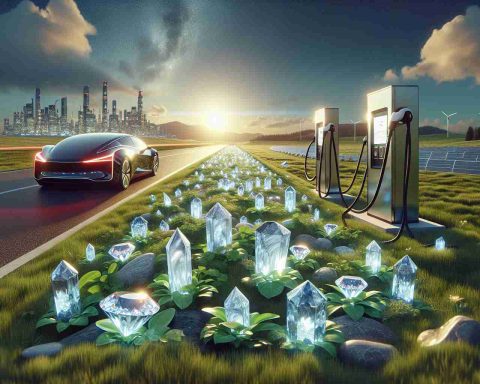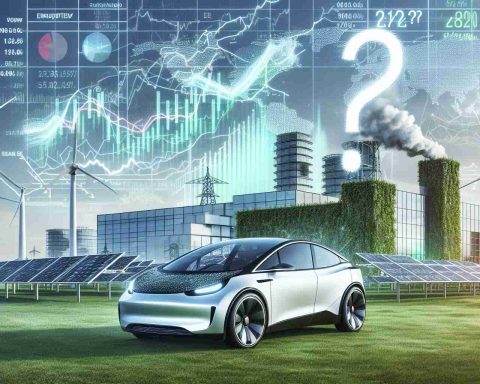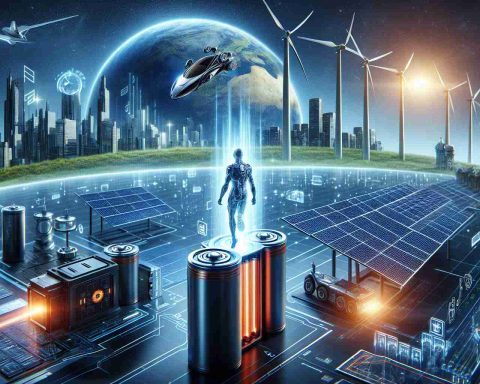Discover the Future of EVs in India
Hyundai Motor India has taken a significant step in the electric vehicle (EV) market with the launch of the Creta Electric. This new addition follows the impressive Ioniq 5, expanding Hyundai’s EV lineup in the country. The Creta Electric debuted at the Bharat Mobility Global Expo 2025 and is available for a price range of Rs 17,99,000 to Rs 23,49,900, while the flagship Ioniq 5 stands at Rs 46,05,000.
In a conversation reflecting on the future of electric mobility, the Managing Director, Unsoo Kim, highlighted the company’s ambition to lower EV costs through increased localisation. He mentioned that Hyundai plans to introduce three more locally produced EVs to cater to varied consumer needs, ranging from compact to larger models.
To support these plans, Hyundai has partnered with Mobis India to localise battery pack assembly at its Chennai facility, marking a significant move towards self-sufficiency in battery production. This facility can assemble up to 75,000 units annually, covering various lithium-ion battery chemistries.
Hyundai’s localisation efforts have already yielded substantial savings and new job opportunities, showcasing its commitment to growth within India. Kim elaborated on the evolving EV pricing structure, drawing parallels to the historical evolution of internal combustion engine prices. Although the market currently sees limited options under Rs 10,00,000, Kim expressed optimism about future developments in affordable EVs.
The Broader Impact of Electric Vehicles in India
The emergence of electric vehicles (EVs), particularly with Hyundai’s latest offerings, is set to reshape more than just the automotive landscape in India; it heralds significant societal, cultural, and economic transformations. The accelerated adoption of EVs has the potential to redefine urban mobility, aligning with global sustainability goals and addressing pressing challenges such as air pollution in major cities.
With rising consumer awareness regarding climate change, the shift towards EVs could significantly influence cultural perceptions around transportation. As more Indians embrace EVs, there may be a gradual transition in consumer preferences, prioritizing sustainability over traditional choices, thereby fostering a culture that favors environmentally-friendly alternatives.
Economically, the localization of battery production not only reduces dependency on imports but also stimulates domestic industry. By establishing facilities like the one in Chennai, Hyundai is poised to create thousands of jobs in manufacturing and supply chain sectors, supporting local economies and advancements in technology.
Environmentally, the increased prevalence of EVs could substantially lower greenhouse gas emissions, contributing to India’s commitments under international climate accords. However, the long-term significance of this transition hinges on responsible sourcing of materials for batteries and an expansion of renewable energy sources to truly make EVs a green alternative.
As we look ahead, future trends suggest that continued investment and innovation in EV technology will drive India towards becoming a hub for electric mobility, inspiring similar movements in other emerging markets.
Revolutionizing the Indian EV Market: Hyundai’s Bold Moves
Discover the Future of EVs in India
Hyundai Motor India is making headlines with its strategic advancements in the electric vehicle (EV) sector, particularly with the launch of the Creta Electric. This model, which debuted at the Bharat Mobility Global Expo 2025, marks a milestone as it expands the company’s EV lineup, following the successful rollout of the Ioniq 5. The Creta Electric is priced between Rs 17,99,000 and Rs 23,49,900, while the flagship Ioniq 5 comes at Rs 46,05,000.
Key Features of the Creta Electric
– Performance: The Creta Electric is expected to offer an impressive range and charging speed, catering to both urban commuters and long-distance drivers.
– Technology Integration: Advanced infotainment and safety features are anticipated, making it a competitive option in the burgeoning EV market.
– Design: Keeping with the popular Creta design language, the electric variant promises a modern aesthetic with eco-friendly attributes.
Pros and Cons of the Creta Electric
Pros:
– Cost-Effective: Positioned at accessible price points, addressing India’s demand for affordable EVs.
– Local Production: Increased localisation can lead to more competitive pricing and faster service and support.
– Sustainability: Lower emissions compared to conventional vehicles align with global sustainability goals.
Cons:
– Initial Market Limitations: The current availability of under Rs 10,00,000 options remains sparse, posing a barrier for many consumers.
– Charging Infrastructure: The existing EV charging infrastructure in India may still need improvement to support widespread adoption.
Hyundai’s Strategic Partnerships and Insights
Hyundai has collaborated with Mobis India to establish a battery pack assembly line in Chennai. This facility is capable of assembling up to 75,000 battery units annually, using various lithium-ion battery chemistries. This important local assembly effort is expected to enhance Hyundai’s self-sufficiency in battery production, reducing costs and potentially leading to price reductions for consumers in the long run.
Market Trends and Predictions
The Indian EV market is on an upward trajectory, with various automakers, including Hyundai, pushing for more affordable options. The company’s Managing Director, Unsoo Kim, emphasized the need for continual investment in localization as a pathway to decrease costs. Insights from Kim suggest that as technological advancements continue, the cost of EVs will likely decline, making them more accessible to the average Indian consumer.
Innovations in EV Technology
Hyundai is committed to sustainability and innovation in its EV offerings. Continuous research and development in battery technologies aim to enhance vehicle performance and reduce costs. The shift to electric mobility is expected to impact not only the automotive sector but also the broader economic landscape, creating jobs and fostering technological advancements throughout India.
Conclusion
Hyundai’s proactive approach in launching the Creta Electric and reinforcing local production capabilities is set to drive the EV revolution in India. By focusing on affordability, sustainability, and innovation, Hyundai is not just participating in the EV market but is poised to lead it. The future of electric vehicles in India looks promising, with significant developments on the horizon.
For more information on Hyundai’s latest innovations, visit Hyundai Motor Company.













